 Our World
Our World  Our World
Our World  Crime
Crime 10 Dark Details of the “Bodies in the Barrels” Murders
 Animals
Animals The Animal Kingdom’s 10 Greatest Dance Moves
 Movies and TV
Movies and TV 10 Box Office Bombs That We Should Have Predicted in 2025
 History
History 10 Extreme Laws That Tried to Engineer Society
 History
History 10 “Modern” Problems with Surprising Historical Analogs
 Health
Health 10 Everyday Activities That Secretly Alter Consciousness
 History
History Top 10 Historical Disasters Caused by Someone Calling in Sick
 Animals
Animals 10 New Shark Secrets That Recently Dropped
 Movies and TV
Movies and TV 10 Forgotten Realities of Early Live Television Broadcasts
 Our World
Our World 10 Places with Geological Features That Shouldn’t Exist
 Crime
Crime 10 Dark Details of the “Bodies in the Barrels” Murders
 Animals
Animals The Animal Kingdom’s 10 Greatest Dance Moves
Who's Behind Listverse?

Jamie Frater
Head Editor
Jamie founded Listverse due to an insatiable desire to share fascinating, obscure, and bizarre facts. He has been a guest speaker on numerous national radio and television stations and is a five time published author.
More About Us Movies and TV
Movies and TV 10 Box Office Bombs That We Should Have Predicted in 2025
 History
History 10 Extreme Laws That Tried to Engineer Society
 History
History 10 “Modern” Problems with Surprising Historical Analogs
 Health
Health 10 Everyday Activities That Secretly Alter Consciousness
 History
History Top 10 Historical Disasters Caused by Someone Calling in Sick
 Animals
Animals 10 New Shark Secrets That Recently Dropped
 Movies and TV
Movies and TV 10 Forgotten Realities of Early Live Television Broadcasts
10 Brutal Realities Of Living In Solitary Confinement
You may remember the scene from Orange is the New Black where Piper has to spend countless hours in a Security Housing Unit, abbreviated as SHU, for doing nothing more than dancing with Alex. While in SHU, Piper overhears screaming and sees the words “Kill Me Now” hauntingly etched on the door, gets fed sub-par and moldy food, and even hears disembodied voices through the vent. While Piper’s experience certainly is disturbing, it hardly touches the harsh realities of prisoners kept in solitary confinement. Prisoners are routinely denied their basic needs and have their human rights compromised on a daily basis.
1080,000 Prisoners
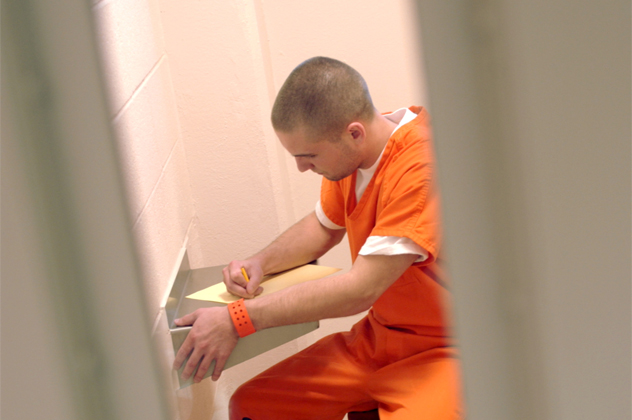
Solitary confinement is widely considered to be a form of cruel and unusual punishment. Its victims are isolated from society and can go for years without seeing so much as a blade of grass. This form of extreme isolation is very unethical, but it affects thousands of prisoners.
One of the most commonly accepted numbers comes from a 2005 survey from the Bureau of Justice Statistics, which says that there were about 81,622 prisoners living in “restricted housing.” The number, which is commonly rounded to 80,000, has been cited everywhere from PBS to The New Yorker.
Supermax prisons, the most secure and isolated of any kind of prison, carry about 20,000 of these prisoners. They are designed to keep their occupants segregated from the rest of the world in bleak and lonely conditions.
9Nonviolent Crimes

In Orange is the New Black, Piper is put in SHU for 48 hours due to “sexual assault” when she was doing nothing more than dancing provocatively with Alex. The truth was that Healy had apparently gotten jealous and was spurred on by a vengeful Pennsatucky. It does seem ludicrous that such a minor offense would ever get someone landed in solitary confinement, but people have been put in longer sentences for crimes just as trivial.
Take the story of Nicole Natschke, who has been in solitary confinement for over half a year because she had a seizure. Well, to be more accurate, she had a seizure, was handcuffed, freaked out, and spit on a security guard. No, it wasn’t the politest of things to do, but it’s rather hard to keep it under control when you’re having a seizure. The guards simply saw this as an opportunity to punish her by sentencing her to confinement.
“My cellmate, Gina, was feeling homicidal and asked for a mental health evaluation. Instead, they threw her in segregation and said she refused housing. When you refuse housing, they give you three months segregation,” she wrote. “You want to know what violent offenses carry? They carry the least amount of time in segregation. If you get into a fight, you’ll do 15 days in seg. If you assault someone, you’ll do 30 days. Everything non-violent carries more than 30 days in seg!”
It gets even worse than that. Some prisoners have landed in solitary for the most trivial of offenses. In South Carolina, some inmates have been sentenced to solitary confinement for several years—up to two decades in some cases—for doing nothing more than updating Facebook. Some of the punishments had to be suspended because the solitary confinement sentences would outlast the inmate’s initial prison sentence. It makes sense that unmonitored contact would be forbidden, but several years in solitary for a Facebook update seems like a really extreme punishment.
Others are put in because of alleged affiliation to gangs, disputes with officers, protection from other inmates, and even for reporting sexual assault victimization. Unfortunately, many security guards can abuse their power and put prisoners in solitary confinement for no good reason.
8One-Third Of Isolated Inmates Have Mental Illness
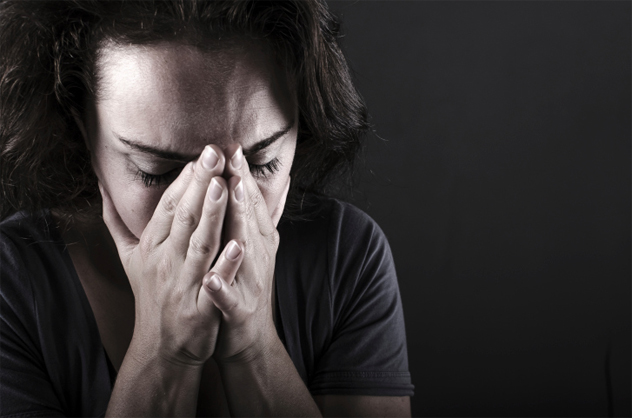
“At many jails and prisons around the country, solitary confinement has become kind of the default placement for the mentally ill,” said New York University psychiatrist Dr. James Gilligan. Gilligan was the lead author of a study which found that about half of Riker Island’s 800 prisoners in solitary confinement had some form of mental illness.
“If they can’t follow the rules outside the facility, how in the world do you expect a mentally ill person to be able to function as an inmate?” said Mitch Lucas, assistant sheriff of Charleston County, South Carolina. “So you end up having to deal with whatever tools you have at hand and, in many jails, the tool is restrictive housing and that’s it.”
Since mentally ill prisoners are more likely to disobey the rules, they are often the ones being thrown into solitary confinement. Too many officers view mental illness as a burden and, of course, the easiest way to deal with mentally ill prisoners is by locking them away. In fact, a 2003 study by the Human Rights Watch estimated that one-third to half of the prisoners in solitary confinement are mentally ill.
Solitary confinement is especially bad for those with mental illness because they are often unable to handle the stress. This is even scarier considering that solitary confinement can make sane prisoners exhibit signs of mental illness after too long.
7It’s Psychologically Damaging
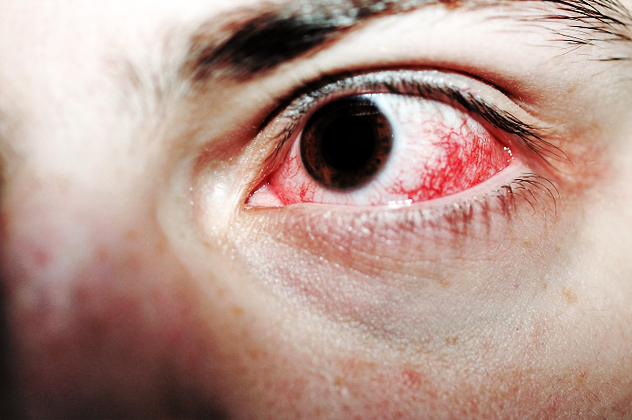
In 2011, lawyer and human rights activist Juan E. Mendez said that prisoners who spend more than 15 days in solitary confinement may be prone to irreversible psychological damage. Because solitary confinement is often described as a form of psychological torture, it’s little surprise that prolonged periods of psychological torture would have negative effects on the victim’s mind.
Prisoners are often neglected, and the extreme loneliness often makes them feel depressed or uneasy. Many of them become paranoid or start to hallucinate. Much like Piper, prisoners often hear disembodied voices that aren’t really there.
A quote from America’s “most isolated prisoner,” Thomas Silverstein, shows just how damaging it can be: “Nearly all of the time, the officers refused to speak to me. Despite this, I heard people who I believed to be officers whispering into my vents, telling me they hated me and calling me names. To this day, I am not sure if the officers were doing this to me, or if I was starting to lose it and these were hallucinations.”
6Inmates Get No Sleep
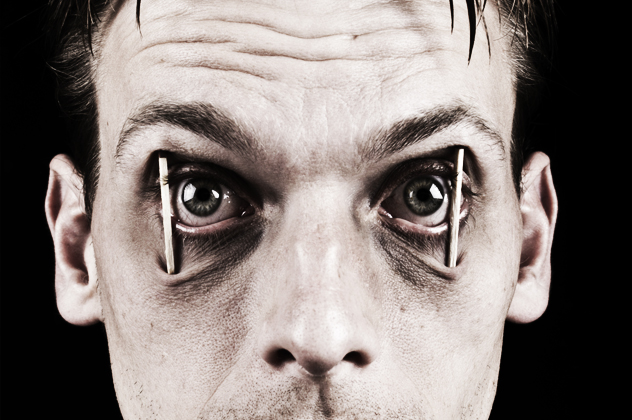
A metal bunk with a mattress is not most people’s idea of comfort, and it can certainly make it hard to sleep. It becomes even worse when you factor in that the fluorescent light on the ceiling never turns off and the doors and alarms always make loud buzzing noises. Prisoners in solitary confinement hardly ever get the recommended eight hours of sleep that most adults get in their everyday life.
A prisoner named Alex, who is being held in a solitary confinement unit in Texas, reported getting as little as four hours of sleep every night. The constant noise makes it extremely hard for him to fall asleep. It’s not just the buzzing sounds of the lights and doors; it’s the other inmates.
The nights are filled with “constant banging, clanking, rage, anger,” Alex wrote. He described the sounds as “a jammed packed area for a boxing match with everyone screaming murder.”
Experts recommend that adults get at least seven hours of sleep each night, but most inmates are lucky if they even get that much. Those who are subject to such conditions inevitably become irritable and exhausted. Less sleep means less energy and therefore less self-restraint when it comes to resisting temptation. Combine insomnia with all the other deplorable things prisoners must go through and some of them will get violent, even if only toward themselves.
5Many Mutilate Themselves
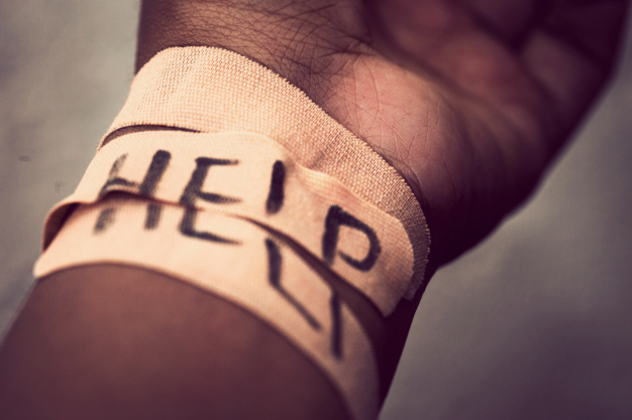
Prisoners in solitary confinement are more likely to exhibit violent urges, depression, and self-destructive behavior. Perhaps it should come as no surprise that they are also more likely to physically harm themselves. A study by the National Institutes of Health examined 244,699 incarcerations between January 2010 and January 2013 and discovered that inmates in solitary were about seven times more likely to hurt themselves. The methods of self-harm range from the trivial to the fatal.
One of the most disturbing stories comes from Jack Powers, who developed PTSD after watching an inmate get killed in front of him by members of the Aryan Brotherhood. Powers tried escaping prison, but he was eventually caught and thrown in solitary. His condition worsened and he could hardly get the help he needed to treat his PTSD.
Powers mutilated himself several times with whatever tools he had at his disposal. He shoved staples into his forehead, cut his Achilles tendon, sliced open his scrotum and released a testicle, swallowed a toothbrush, and then cut open his abdomen to retrieve it. Even without the use of sharp objects, he was still able to remove one of his fingers with his teeth.
Needless to say, the chilling effects of solitary confinement are enough to drive anyone to inflict injuries upon themselves. Powers is alive today and out of solitary confinement, but he is one of the few who actually survived.
4Inmates Are Likely To Commit Suicide
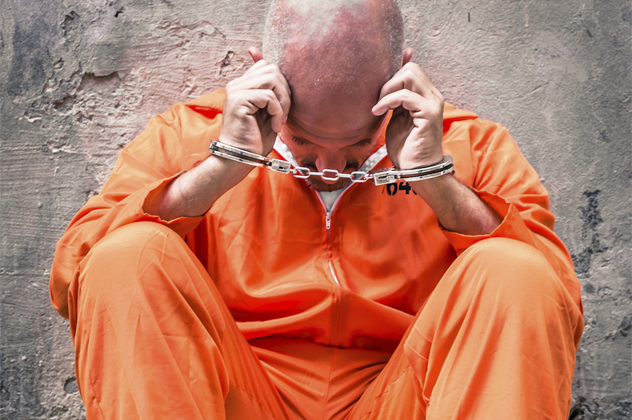
The harsh mental torture of solitary confinement leads many prisoners to take their own lives. Mental illness, depression, and extreme isolation all play factors in the disproportionate rate of suicide that prisoners in solitary confinement face. Loneliness is often linked to depression and is made worse by the fact that the inmate has absolutely nobody they can talk to in order to express their emotions.
Prisoners in solitary confinement are five times more likely to kill themselves when compared to the general population. While inmates in solitary confinement only make up about 5 percent of the prison population, they make up about 70 percent of the overall prison suicides.
The prisoners often don’t get the help that they need. They require therapy, human contact, and psychiatric evaluation, but prisons are often understaffed with mental health professionals and overcrowded with mentally ill inmates.
3Inmates Are Denied Basic Needs
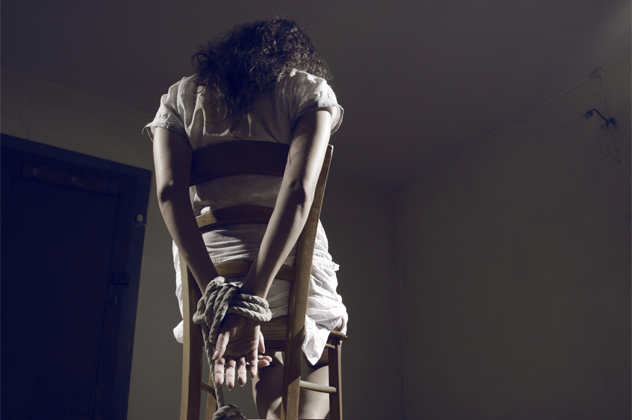
No sleep. Bad food. No human contact. Nobody to listen to you. These are just a few of the bleak snapshots of everyday life for America’s 80,000 inmates in solitary confinement. These prisons are rife with violations of basic human rights and needs, and prisoners in solitary confinement are often treated like slaves.
Nicole Natschke, whom we mentioned earlier, reported that the conditions of solitary confinement were often very unsanitary. Prisoners never even got the chance to shower every day. If prisoners acted up, guards would deny them the right to shower, despite it being against the rules. Natschke has gone for stretches of at least 12 days without a shower. Even worse, Natschke and other inmates had to beg for period pads. Guards would ignore them or say that there weren’t any. Those who did get pads also received a misconduct ticket, which prevents them from reducing their sentence.
Many staff members will ignore inmates, even when those inmates are in extreme pain or dying. Such is the story of Andy Henriquez, who had reported several instances of chest pain and was diagnosed with costochondritis. However, a neglectful doctor never gave Henriquez the follow-up procedures or the medication he needed to survive.
One day, Henriquez was in extreme pain and the doctor simply gave him some medicine and sent him back to his cell. Guards were required to check up on him every 15 minutes, but they failed to do so. Other inmates reported that the guards routinely ignored Henriquez’s cries for help. Inmates kicked their doors and screamed for a medic, but the guards did nothing. Henriquez died that day after suffering a torn aorta.
2Confinement Has No Effect On Reducing Crime
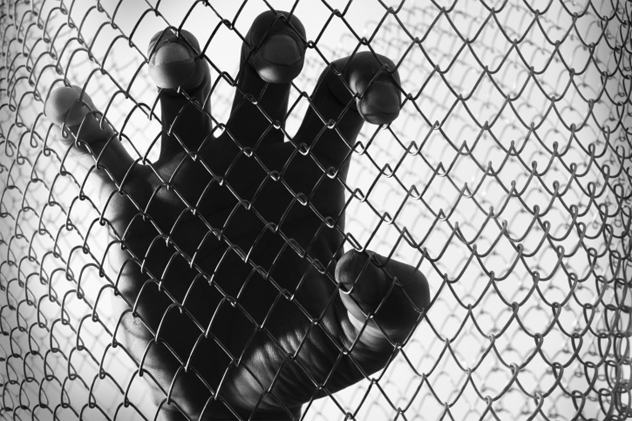
Solitary confinement is often used as a “time out” for inmates who have committed terrible crimes in prison. It might seem like a fitting choice because there are few other ways to punish a criminal who is already in prison. We’d like to believe that once someone emerges from solitary confinement, they will have learned their lesson and refrain from committing crimes ever again. But the opposite is true. Those held in confinement are actually more likely to commit violent crimes.
Extended time in solitary causes one to develop outbursts of anger and violent impulses. Therefore, it’s no wonder that those held in solitary have a higher recidivism rate than the general prison population.
Two studies, one conducted by Daniel Mears and William Bales from 1996 to 2001 and another by Professor Lovell from Washington State, concluded that prisoners put in solitary confinement were at higher risk for recidivism. This makes solitary confinement, or at least long periods of it, an extremely counterproductive and useless punishment. It does little more than cost the state thousands of dollars and inflict lasting psychological damage onto the victim.
1Average Sentence Is Several Years

In Orange is the New Black, Piper is only sentenced to solitary for 48 hours, though her fiance helps get her out early. Even in that short period, she breaks down and recognizes how unbearable the conditions are for her. Luckily for Piper, her sentence was short.
This is not the case when it comes to the thousands of prisoners being held in confinement in jails all across America. It’s difficult to get a solid figure on the average sentence length, but time in solitary can last anywhere from a few days to countless years. In Colorado, the average sentence is 23 months. In Texas, it’s four years. California’s Pelican Bay has an average sentence of 7.5 years. Death row prisoners face an average of 14 years in solitary before their execution.
Given that 15 days in solitary confinement is already enough to give someone permanent psychological scars, can you imagine what it must be like to spend years and years in isolation? Some prisoners are kept there indefinitely with no clue as to when they will get out, if ever. They are doomed to spend several years, if not the rest of their lives, alone and wondering if they’ll ever live a normal life. They have to be treated as if they are less than human, with sub-par food, an uncomfortable living space, and a barrage of negative psychological effects. Prison isn’t supposed to be pleasant, but every person deserves to at least have their basic human rights acknowledged.
Patrick W. Dunne is currently a staff writer for SMBAdviser.com and writes about topics like business, leadership, productivity, finance, and marketing. He graduated from Chaminade University with a B.A. in Business Administration and a minor in Psychology. If you’d like to contact him, send a message to his Twitter account or LinkedIn profile.








